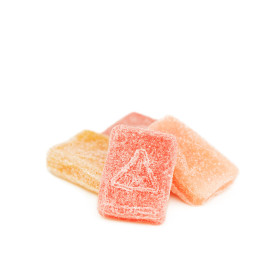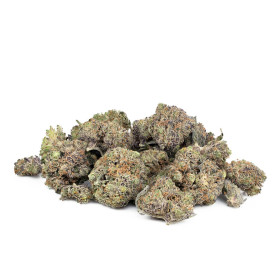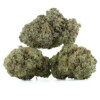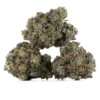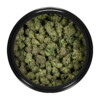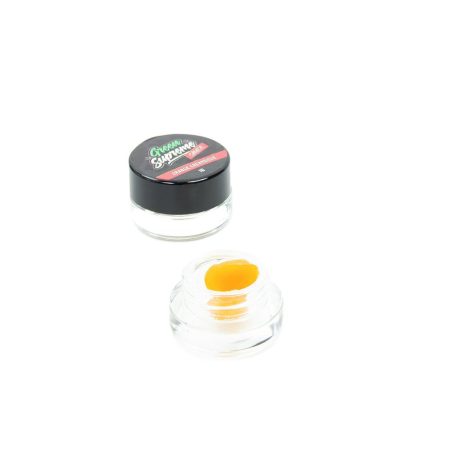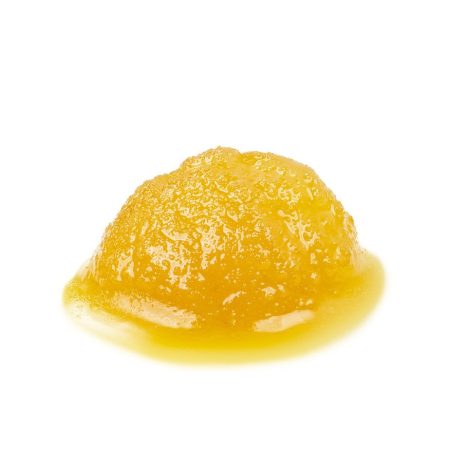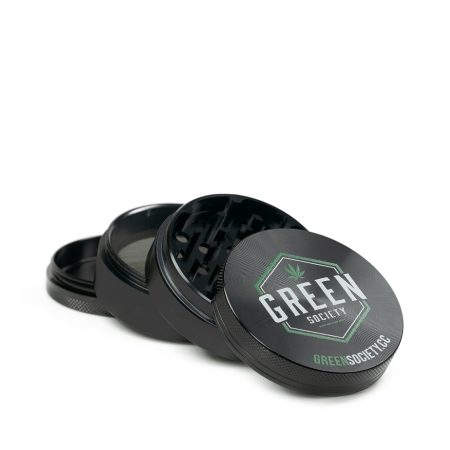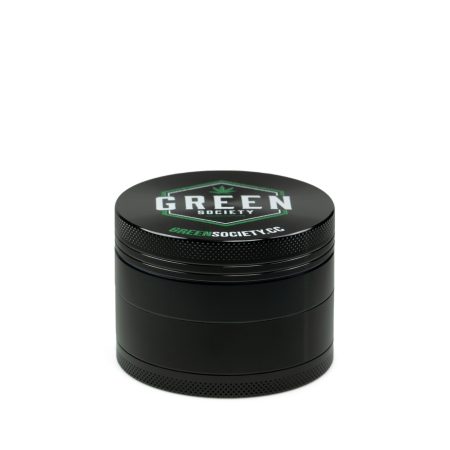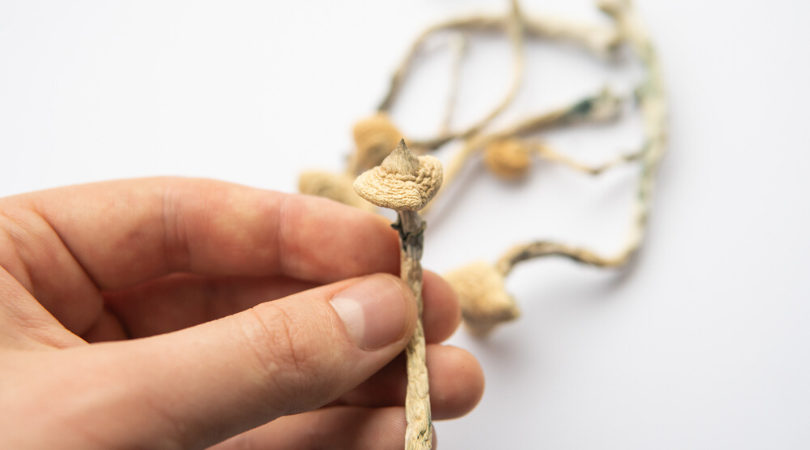Magic Mushroom
Here’s What Magic Mushrooms Do To Your Body and Brain
Most people have heard of magic mushrooms, and if you have not tried them before, it is incredibly common to wonder what it is like to use them. Even if you have used magic mushrooms or shrooms before, you may want to better understand why your brain and body react the way that they do. Read on to learn not only what magic mushrooms do to your body and brain but also why.
Legalities and Limited Research
Before getting into how magic mushrooms affect you, keep in mind that they are classified as a Schedule I drug in the United States. This means that they do not have an accepted medical use. However, cannabis falls into the same category despite many promising studies so that classification should not automatically rule out any potential benefits.
More importantly, Schedule I drugs are illegal at the federal level. They are legalized in some areas, as well as in some other countries and parts of other countries. The key point is that they may not be legal where you live, which is something you should always keep in mind.
Additionally, the fact that magic mushrooms are illegal in most areas means that there is limited research on them so far. It is very challenging to gain approval for studies using Schedule I substances, which is also one of the obstacles facing cannabis research. As such, the evidence for the various ways that shrooms affect your body and brain is still in its early stages.
A Quick Refresher on Magic Mushrooms
Magic mushrooms are in the genus Psilocybe, and they cause hallucinations and other effects due to the presence of psilocybin and psilocin, which are psychotropic tryptamines. One shroom can have 0.1 to 1.3 percent psilocybin.
They Can Dilate Your Eyes
Physically speaking, you may experience dilated pupils when you consume magic mushrooms. This comes from the increase in levels of serotonin that can occur.
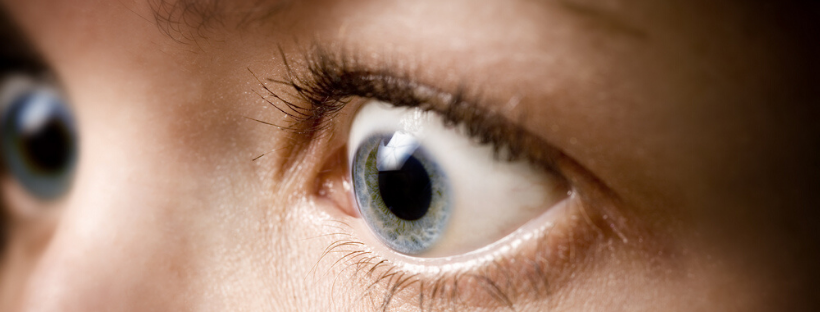
They Improve Your Mood
When you consume magic mushrooms, you may enjoy the same type of relaxation that is typically associated with consuming marijuana in low doses. This relaxation likely comes from the way that shrooms affect the prefrontal cortex and its role in perception and mood.
They Can Cause Hallucinations
It is very common to hallucinate when using shrooms, with many people reporting hearing colors and seeing sounds. This is likely due to how psilocybin affects the communication that occurs across the brain networks.
A 2014 study injected some participants with 2 milligrams of psilocybin. These people experienced an increase in activity strength across parts of the brain that do not typically “cross-talk” or communicate with each other. Those researchers created a visualization to demonstrate the difference in the form of a circle with varying line colors, with each representing a different area of the brain. There are then lines connecting the various parts to indicate communications. While there are a handful of connections in the brains of those who took a placebo, there are enough connections in those who consumed psilocybin to fill in the bulk of the circle.
Lingering Hallucinations Are Possible But Rare
It is rare, but some people have reported that they have lingering hallucinatory perceptions following using psilocybin. Experts believe these perceptions may be connected to HPPD (hallucinogen persisting perception disorder). This is a rare disorder that leads to someone experiencing hallucinations long after taking a hallucinogenic, whether it is LSD or shrooms. There is still a very limited understanding of HPPD.
They Can Cause Time Distortions
In addition to experiencing hallucinations, it is common for those who use magic mushrooms to experience time distortions. Specifically, you are likely to feel that time is passing more slowly.
They Can Cause Out-of-body Experiences
The hallucinations can also extend to out-of-body experiences. These are most common starting about 20 to 90 minutes following the initial ingestion of the shrooms, and it can last as long as 12 hours.
Nearly everything seems to affect whether you have an out-of-body experience as well as its duration and how you feel during it, including your surroundings, mood, and personality.
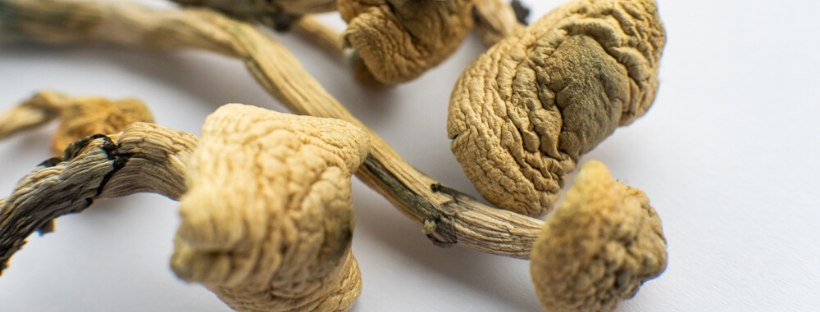
They Can Boost Imagination and Openness
Consuming psilocybin or magic mushrooms can also have positive effects on your thoughts. Following the out-of-body experiences that are common when consuming shrooms, it is also very common to feel more imaginative, open, and appreciative of beauty after.
Interestingly, these changes can even affect you long-term. Psychologists at John Hopkins used psilocybin to induce an out-of-body experience for healthy volunteers. After, they showed increases in imagination, openness, and appreciation for beauty. A year later, about half still scored higher on a personality test that looked for openness compared to their pre-experience results.
They May Help With Depression
Although this type of research is still in the extremely early stages, experts believe that shrooms have the potential to help ease the symptoms of depression, and there is plenty of anecdotal evidence to back up this idea.
Some of the research on this potential effect of magic mushrooms comes from neuroscientist David Nutt from the Imperial College London. He authored a 2012 study that looked at psilocybin. In the research, Nutt discovered brain activity changes in those who were on psilocybin.
Interestingly, some regions of the brain were more muted, while others were more pronounced. The muted areas included part of the brain that experts believe is part of maintaining a sense of self. Nutt believes that those with depression have connections that are too strong in this region. The idea is that consuming psilocybin could loosen these connections and either create or provide the opportunity to create new ones.
There was also recent research published in The Lancet that found that shrooms in high doses could reduce symptoms of depression in patients that were resistant to treatment. That study also indicated that psilocybin has the potential to treat obsessive-compulsive disorder, addiction, and anxiety via its mood-elevating properties, but more research in those areas is needed.
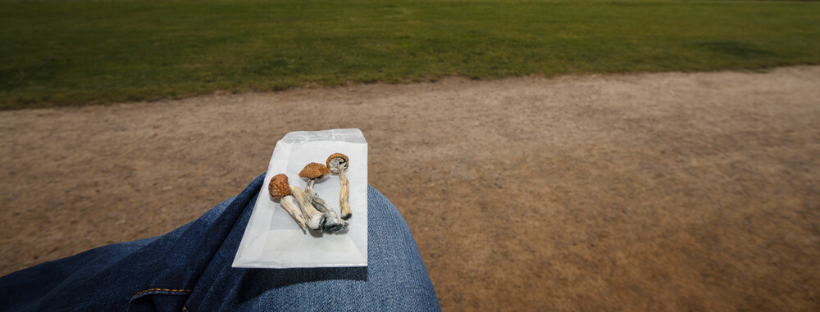
A Five-year Study
There is even more support for the ability of psilocybin to help with depression from two clinical trials that were controlled and involved patients who were suffering from distress and depression due to dealing with end-of-life issues. One study was by Johns Hopkins University and the other from New York University.
Half a year after the initial John Hopkins Study, 80% of the participants had significantly decreased symptoms of anxiety and depression. After 6.5 months, the team from NYU reported that 60-80% of participants had a reduction in their depression and anxiety, and this was just following one psychedelic trip.
They May Help With Anxiety – After
There is also some evidence that magic mushrooms may be able to reduce anxiety, both research-based and anecdotal. A study from New York University included cancer patients who had severe anxiety. Participants indicated they were taken on an emotional journey that helped them realize that they should not worry about their defenses, insecurities, and anxieties.
They May Cause Anxiety During the Experience
Although magic mushrooms may be able to reduce anxiety after consuming them, they may make you anxious during the actual experience. Unfortunately, many people experience intense discomfort and anxiety, especially if they are not prepared for the trip. This discomfort and anxiety may just last a few minutes or extend to several hours.
It almost always, however, turns into a sense of relief after the high is gone.
Other Effects
In addition to the previously mentioned effects, there are dozens of potential ways that magic mushrooms can affect your body and mind. Physically, you may notice unusual body sensations, nausea, a lack of coordination, muscle weakness, dizziness, and drowsiness, in addition to dilated pupils.
Effects on your brain can include impaired concentration, distorted thinking, euphoria, peacefulness, quickly changing emotions, spiritual awakening, visual distortions and alterations, derealization, and depersonalization. Derealization is when you feel as if your surroundings are fake, instead of being real. Depersonalization is when you feel dream-like and disengaged from the environment around you. Both can be related to out of body experiences.
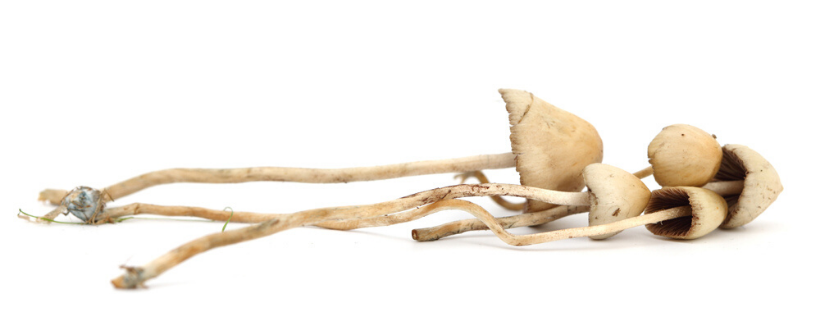
Bad Trips
There is an increased chance of experiencing a bad trip if your mental state is poor or the environment you are in is highly structured. During a bad trip, instead of feeling euphoric, you feel nervous, anxious, or paranoid. There is no cure for a bad trip other than waiting it out, in most cases.
Some people may have very unpleasant effects, such as confusion, delirium, fear, agitation, psychosis, or symptoms resembling those of schizophrenia. In the rare case that these reactions require hospitalization, doctors will usually treat the patient with benzodiazepines or other medications. The effects typically disappear within six to eight hours once the drug’s effects have worn off.
To help minimize your risk of a bad trip, you should also make sure to have someone with you who is experienced and can serve as your guide. You can also reduce the risk by starting with shrooms that have lower potencies.
Timing of Reactions
Your gut will ingest then absorb psilocybin, at which point your body converts it into psilocin. In most cases, you will start noticing hallucinogenic effects within 30 minutes after ingesting psilocybin or shrooms. The effects usually last four to six hours. However, the effects sometimes can last several days, specifically those related to thought patterns and sensory perception.
Remember That Effects Vary
It is very important to keep in mind that the way that magic mushrooms affect you will be different than how they affect others. It depends on numerous factors, including your emotional state and the environment you are in, as well as the type of shrooms you take.
In terms of the shrooms itself, its potency depends on its species, origin, harvest period, growing conditions, and whether you consume them dried or fresh. Dried mushrooms usually have about 10 times the concentration of active ingredients than fresh ones.
Be Wary of Poisonous Mushrooms
If you do not buy your magic mushrooms from a reputable source, you may accidentally consume a poisonous mushroom instead. The risk is very small if you buy from a trusted source. Be on the lookout for symptoms like muscle spasms, delirium, and confusion, which could point to mushroom poisoning. Poisoning requires emergency medical attention.
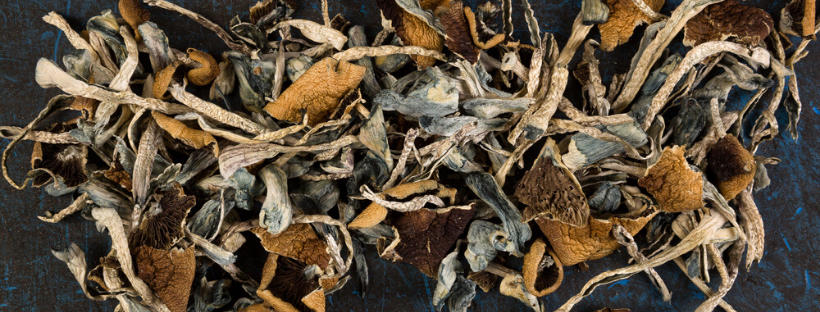
How Shrooms Work
Knowing what magic mushrooms do to your body is one thing, but why do they produce those effects? Experts believe that it is due to their interactions with the brain’s neural highways, specifically those that use serotonin, a neurotransmitter. Early evidence indicates that magic mushrooms impact the prefrontal cortex of the brain. This is the part of the brain responsible for mood and perception as well as regulating thought analysis and abstract thinking.
The bottom line is that due to the prefrontal cortex’s impact on perception, mood, and cognition, psilocybin’s effects on that part of the brain will produce effects related to those factors.
Keep Tolerance in Mind
Quantities are also important to consider when understanding how shrooms affect you. Experts do not consider shrooms to be addictive, but there is a very real chance that you can accidentally build up a tolerance to them. In fact, if you use magic mushrooms on two consecutive days, it is very likely that your experience on the second day will be less intense.
You may also experience cross-tolerance with magic mushrooms and other types of psychotropic drugs, including peyote, mescaline, and LSD. This is when taking mushrooms builds up your tolerance of the others or vice versa.
Conclusion
Magic mushrooms produce a range of reactions that affect both your body and mind. The psilocybin in shrooms interacts with serotonin receptors and neurotransmitters, primarily in the prefrontal cortex. This can result in relaxation and euphoria. Consuming shrooms also frequently leads to hallucinations or distorted perceptions, such as seeing sounds. The effects vary by person and also depend on the species of shrooms you consume and the environment you are in. Stay safe by getting shrooms from a reputable source.


